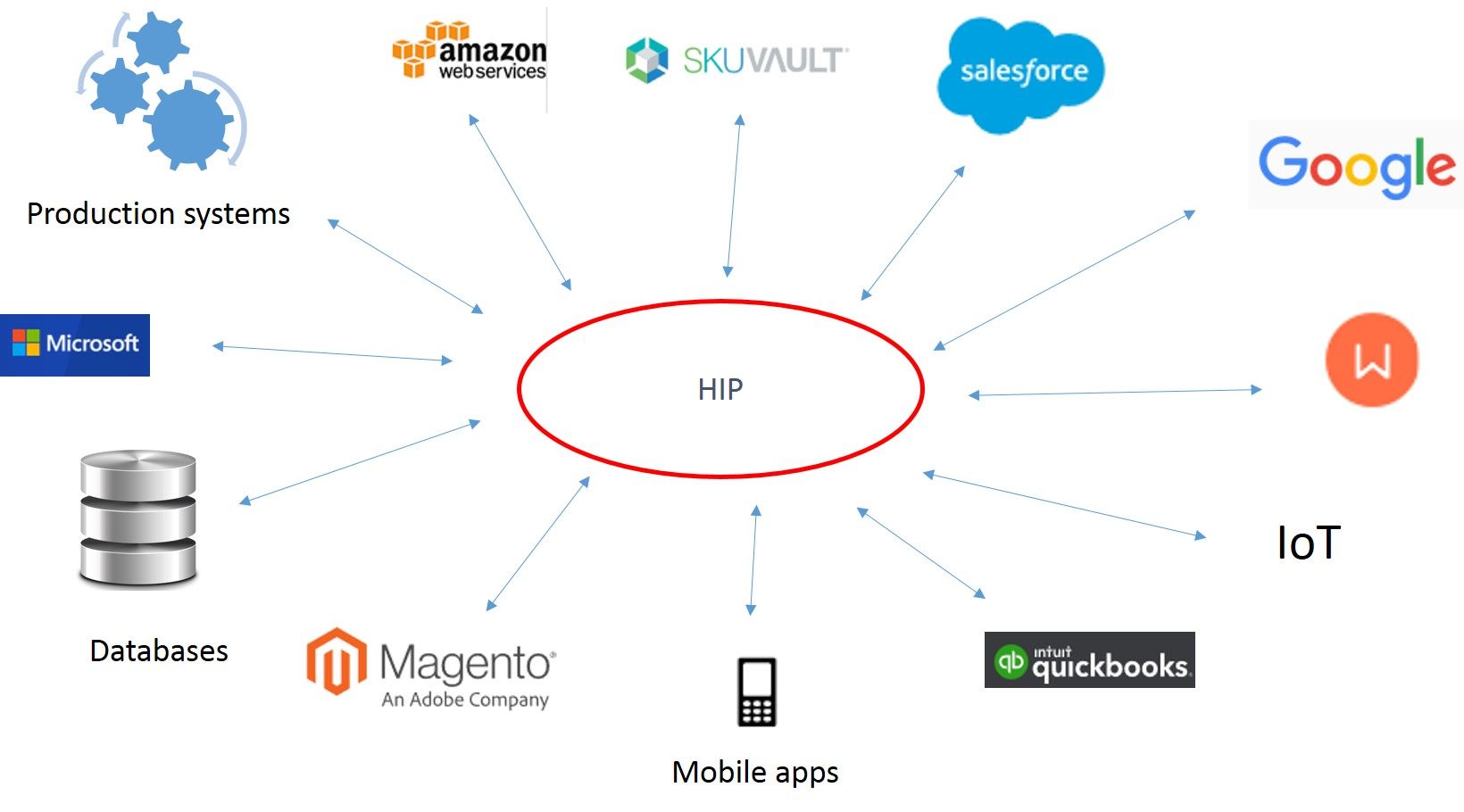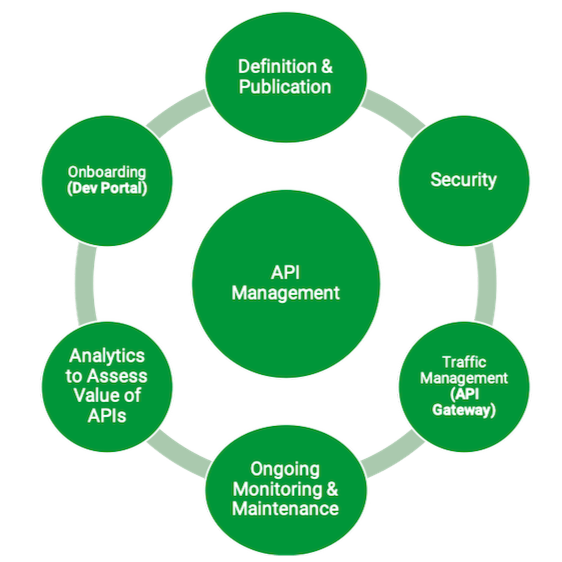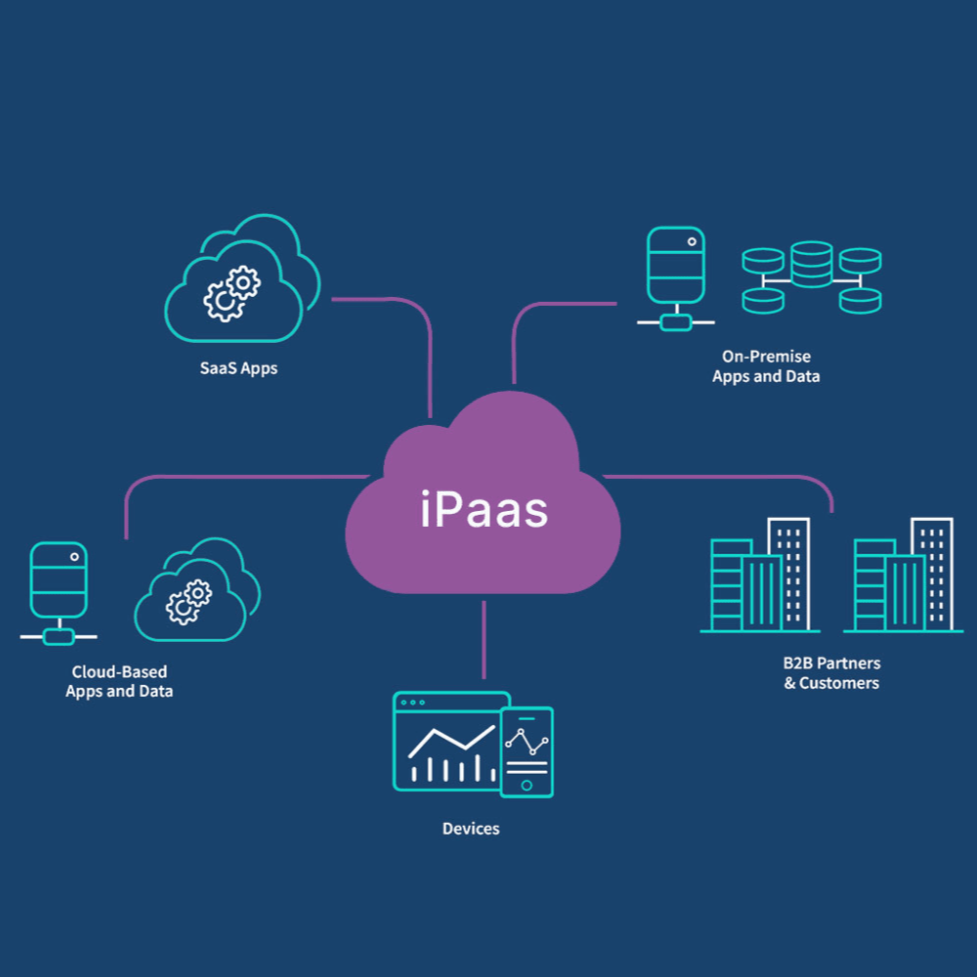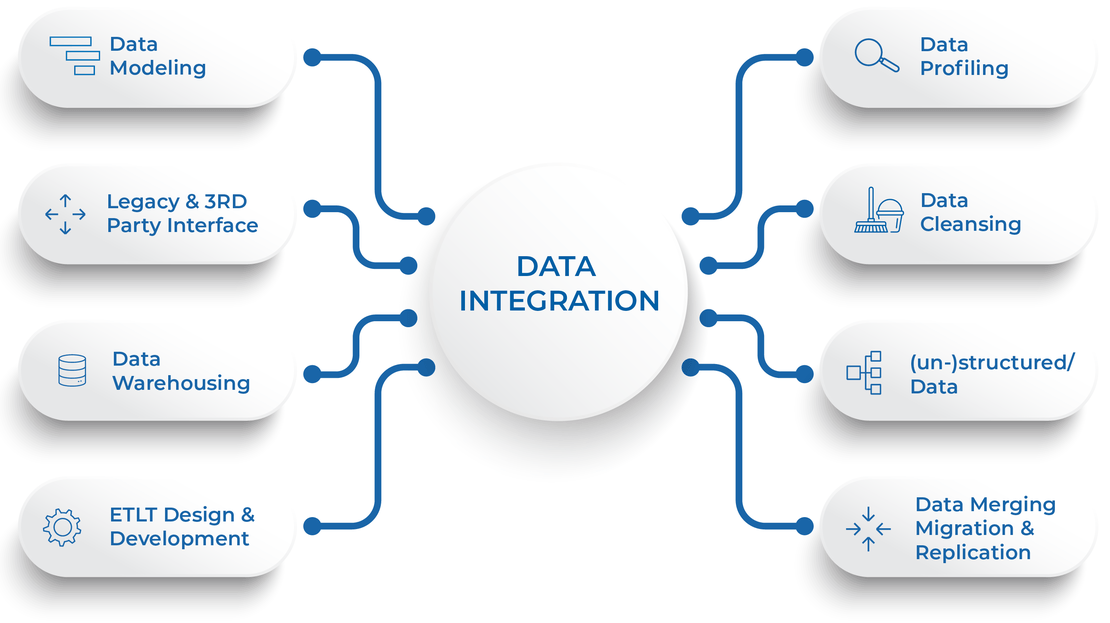We are used to the integration term, which refers to the process that connects and syncs data between business applications. So, have you ever heard of the hybrid integration platform (HIP)? It’s a solution that bridges the gap between legacy systems and modern applications, empowering organizations to thrive in the digital era. In this article, let’s explore its definition, roles, use cases, and top providers.
Understanding a Hybrid Integration Platform (HIP)

As we mentioned above, a Hybrid Integration Platform (HIP) is an advanced framework that allows for the integration of on-premises and cloud-based services, applications, and data within a single, unified platform. It facilitates the flow of information across various environments, ensuring compatibility and coherence between disparate systems.
The benefits of adopting a HIP are multifaceted, including enhanced agility, improved efficiency, and the ability to innovate at scale. By leveraging a HIP, organizations can:
- Accelerate digital transformation initiatives.
- Enable seamless communication across different platforms.
- Reduce integration costs and complexity.
- Enhance data security and governance.
Is HIP important for today’s business?
In our opinion, the ability to integrate and manage a diverse range of technologies is paramount. HIPs offer the flexibility and scalability businesses need to respond to market demands swiftly, making them indispensable tools for companies looking to maintain a competitive edge.
Key components of the hybrid integration Platform
API management
API management within Hybrid Integration Platforms is essential for ensuring secure, efficient, and scalable data exchange between disparate applications. It streamlines the integration process by securing APIs, simplifying access with thorough documentation, managing versions for compatibility, and monitoring performance. Additionally, it controls API traffic through rate limiting, maintaining system integrity. This functionality is pivotal for blending traditional and modern technologies within a HIP, facilitating seamless interoperability, and enhancing organizational agility.

Integration platform as a service (iPaas)
Integration Platform as a Service (iPaaS) provides a cloud-based approach to streamline the connection of diverse systems and data sources, evading the need for on-site hardware. It facilitates easy automation of workflows and data sharing, boosting organizational agility and scalability. iPaaS enables quick responses to evolving tech demands, fostering streamlined operations and enhanced data flow, which is critical for driving business innovation and efficiency.

Enterprise Service Bus
The Enterprise Service Bus (ESB) in a Hybrid Integration Platform serves as the critical infrastructure that enables seamless interactions between varied applications and services. By standardizing communication, ESB simplifies the integration of diverse systems, allowing for efficient message routing, transformation, and orchestration. It is essential for bridging legacy and modern cloud applications, thus boosting operational efficiency and facilitating digital transformation efforts.
Data integration
Data integration centralizes data from various sources, bridging the gap between on-premises and cloud environments. Its critical function is to ensure data consistency and availability, supporting informed decision-making and operational efficiency. By breaking down data silos, it enables a unified data view, fostering enhanced insights and better service delivery. The streamlined information flow bolsters business intelligence and strategic initiatives, making it an essential component of a HIP.

Hybrid Cloud Integration
Hybrid Cloud Integration ensures seamless connectivity between on-premises systems and cloud environments, fostering a scalable and adaptable infrastructure. It enables efficient data and application exchange across various platforms, supporting agility in responding to market demands. This approach melds the security of private clouds with the scalability of public clouds, offering an optimized computing environment that meets both operational flexibility and cost-effectiveness needs.

The Hybrid Integration Platform Uses Case
Hybrid Integration Platforms (HIP) have revolutionized the way businesses approach integration, offering a plethora of use cases that enhance operational efficiency, agility, and innovation. It includes B2B integration, data business integration, universal connectivity, multi-cloud data sync, data delivery for IoT integration, and embedded integrations.
B2B Integration
HIPs facilitate seamless data exchange and collaboration between organizations. They support the automation of supply chain processes, improve transaction accuracy, and enhance partner relationship management by ensuring that critical business data flows securely and efficiently between entities.
Business data integration
Enterprise data integration includes data integration and application-to-application integration. iPaas can create an environment for easier communication between stakeholders with real-time data, and its format can be transformed as their system can understand.
Furthermore, organizations can integrate data from different systems or apps, including eCommerce, ERP, CRM, finance, POS, and other operational platforms. iPaas can combine various apps into a single platform for all stakeholders. Because of the real-time updated data, it facilitates improved decision-making, strategic planning, and identifying chances for optimization and development.
Universal Connectivity
In addition to software and systems, integrating devices is equally crucial for leveraging the full potential of the Internet of Things (IoT). Organizations aiming to make the most of IoT must have the capability to gather data from any device, at any location, and at any time to generate reports or facilitate interactions. Lemberg Solutions’ IoT development services can help achieve this integration seamlessly.
Integration Platform as a Service (iPaaS) has emerged as a superior alternative to traditional mobile integration solutions. It enables businesses to seamlessly integrate data across various cloud services, devices, on-premises systems, and other IoT devices, thereby enhancing operational efficiency and data accessibility.
Multi-cloud data sync
As organizations increasingly adopt new technologies, open-source tools, big data sources, and cloud storage, ensuring consistent and synchronized data becomes crucial, whether on-premises or in the cloud. HIPs enable real-time or scheduled data synchronization between various cloud platforms for backup, disaster recovery, or to maintain a unified data repository accessible from multiple services.
Data Delivery for IoT Integration
Integration ensures seamless cooperation between different applications and data, especially crucial in IoT, where it bridges IoT devices, data, and platforms with traditional IT assets like business apps and legacy data. The approach employs middleware solutions (e.g., ESB, iPaaS, and ETL tools) to tackle IoT connectivity and backend integration. Specialists provide extensive services for diverse integration needs, including data normalization, adapters for various systems, support for IoT protocols like MQTT, event streaming, and workflow orchestration to streamline process integration.
Embedded Integrations
Cloud integration platforms are increasingly embedded in SaaS and other applications, providing integration as a service. This development is expanding the use and versatility of integration processes, leading to a surge in purpose-built applications enhanced by embeddable integrations. Additionally, vendors are now offering specialized integration products for partners and managed service providers, allowing them to offer customized integration solutions to their customers, thereby enriching their service offerings.
The Future of Hybrid Integration Platform

The future of Hybrid Integration Platforms is set to revolutionize business integration, blending AI, machine learning, and blockchain to streamline processes and secure data transactions. With the adoption of microservices and serverless computing, HIPs will offer unprecedented agility and scalability. Enhanced user interfaces and developer tools are anticipated to make integration simpler and more intuitive. As businesses lean more towards multi-cloud environments and IoT, HIPs will be pivotal in creating a unified digital ecosystem, driving innovation, and transforming businesses into more agile, resilient, and customer-focused entities.
Top 3 Hybrid Integration Platform Providers
MuleSoft
MuleSoft is renowned for its Anypoint Platform, a leading solution in the HIP space that emphasizes API-led connectivity. This platform allows businesses to design, deploy, and manage APIs and integrations in a single, unified environment. MuleSoft’s approach not only simplifies the integration process but also accelerates digital transformation by enabling companies to unlock and connect their data in new, innovative ways. The flexibility and scalability offered by MuleSoft make it an ideal choice for enterprises looking to future-proof their IT infrastructure.
MuleSoft products
- API Management
- Integration
- Deployment & Monitoring
HexaSync
HexaSync, developed by Beehexa, is one of the iPaaS integration platforms in the global market. Working as a middleware platform, HexaSync facilitates businesses to connect and synchronize data between two or more systems, applications, or platforms, including integration between legacy systems and modern SaaS applications. With high flexibility, users can integrate any data, depending on their needs and finances, through APIs.
The HexaSync platform allows users to easily track data from the source to the destination system. Therefore, businesses can easily detect errors, know the cause of the problem, and even fix the error themselves if it is not a professional technical error.
HexaSync Products
- eCommerce Integration
- POS Integration
- ERP Integration
- CRM Integration
- Marketplace Integration
- Accounting Integration
IBM
IBM‘s offering in the HIP arena is anchored by its Cloud Pak for Integration, a comprehensive suite designed to tackle the challenges of integration in a multi-cloud world. IBM combines traditional middleware solutions with cutting-edge technologies like AI and blockchain, offering a robust platform that supports a wide range of integration needs. From API lifecycle management to secure gateway services and event streaming, IBM’s Cloud Pak for Integration equips businesses with the tools necessary to integrate complex systems efficiently and securely.
Some IBM Product Features
- IBM Cloud Pak for Integration
- IBM Cloud Pak for Automation
- IBM Cloud Pak for Data
- IBM Cognos Analytics on Cloud
- IBM InfoSphere DataStage
Conclusion
Hybrid Integration Platforms (HIP) are essential in today’s digital landscape, bridging the gap between traditional and cloud-based IT systems. As businesses strive for agility and innovation in the face of digital transformation, HIPs play a critical role in building a resilient and forward-looking digital infrastructure. If you are seeking a HIP provider, please feel free to contact us.